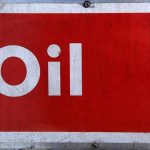(Reuters) -The labels “dove” and “hawk” have long been used by central bank watchers to describe the monetary policy leanings of policymakers, with a dove more focused on risks to the labor market and a hawk more focused on the threat of inflation.
The topsy-turvy economic environment of the coronavirus pandemic sidelined those differences, turning U.S. Federal Reserve officials at first universally dovish as they sought to provide massive accommodation for a cratering economy, and then, when inflation surged, into hawks who uniformly backed aggressive interest rate hikes.
Now, with inflation easing and the labor market still strong but cooling, the risks are seen as more balanced and the choices more nuanced.
All 12 regional Fed presidents discuss and debate monetary policy at Federal Open Market Committee (FOMC) meetings that are held eight times a year, but only five cast votes at any given meeting, including the New York Fed president and four others who vote for one year at a time on a rotating schedule.
The following chart offers a look at how officials view the outlook for Fed policy and how best to balance their goals of stable prices and full employment. The designations are based on comments and published remarks; for more on the thinking that shaped these hawk-dove designations, click on the photos in this graphic.
Reuters over time has shifted policymaker designations based on fresh comments and developing circumstances – for an accounting of how our counts have changed, please scroll to the bottom of this story.
Dove Dovish Centrist Hawkish Hawk
Raphael Jerome Loretta Michelle
Bostic, Powell, Fed Mester, Bowman,
Atlanta Chair, Cleveland Governor,
Fed permanent Fed permanent
President, voter: “The President voter:”My
2024 prudent , 2024 baseline
voter: “If thing to do voter*: outlook is
we is…to just “The that
continue give it some current inflation
to see a time and see strength will
further that the in labor decline
accumulati data confirm market further
on of that condition with the
downside inflation is s and the policy
surprises moving down strong rate held
in the to 2% in a spending at the
data it’s sustainable data give current
possible way.” Feb 4, us the level.”
for me to 2023 opportuni Feb 2,
get ty to 2024
comfortabl keep the
e to nominal
advocate funds
normalizat rate at
ion sooner its
than the current
third level
quarter. while we
But the gather
evidence more
would need evidence
to be that
convincing inflation
.” Jan. truly is
18, 2024 on a
sustainab
le and
timely
path back
to 2%.”
Feb 6,
2024
Patrick John Thomas
Harker, Williams, Barkin,
Philadelph New York Fed Richmond
ia Fed President, Fed
President, permanent President
2026 voter: “It , 2024
voter: will only be voter: “I
“The appropriate am very
runway at to dial back supportiv
our the degree e of
destinatio of policy being
n is in restraint patient
sight.” when we are to get to
Feb 6, confident where we
2023 that need to
inflation is get.” Feb
moving 7, 2024
toward 2% on
a sustained
basis.” Jan.
10, 2024
Philip Lorie
Jefferson, Logan,
Vice Chair: Dallas
“We are in a Fed
sensitive President
period of , 2026
risk voter:
management, “We
where we shouldn’t
have to take the
balance the possibili
risk of not ty of
having another
tightened rate
enough, increase
against the off the
risk of table
policy being just
too yet.”
restrictive. Jan. 6,
” Oct. 9, 2024
2023
Christopher Neel
Waller, Kashkari,
Governor, Minneapol
permanent is Fed
voter: “I am President
becoming , 2026
more voter: ”
confident I would
that we are say two
within to three
striking cuts
distance of would
achieving a seem to
sustainable be
level of 2% appropria
PCE te for me
inflation.” right
Jan 16, 2024 now.” Feb
7, 2023
Michael
Barr, Vice
Chair of
Supervision,
permanent
voter: The
Fed is “at
or near the
peak” of
interest
rates.” Nov.
17, 2023
Lisa Cook,
Governor,
permanent
voter: “I
see risks as
two-sided,
requiring us
to balance
the risk of
not
tightening
enough
against the
risk of
tightening
too much.”
Nov. 16,
2023
Adriana
Kugler,
Governor,
permanent
voter: “I
will remain
focused on
the
inflation
side of our
dual mandate
until I am
confident
that
inflation is
returning
durably to
our 2%
target.” Feb
7, 2024
Mary Daly,
San
Francisco
Fed
President,
2024
voter: “It
takes
patience. It
takes
gradualism.”
Jan. 19,
2024
Austan
Goolsbee,
Chicago Fed
President,
2025 voter:
“I think
more and
more
progress
like what we
have seen on
inflation
and on jobs
is what we
need to see
to feel
comfort that
we’re on
target.” Feb
2, 2024
Susan
Collins,
Boston Fed
President,
2025 voter:
“For the
moment,
policy
remains well
positioned.”
Feb 7, 2024
Note: Fed policymakers began raising interest rates in March 2022 to bring down high inflation. Their most recent policy rate hike, to a range of 5.25%-5.50%, occurred last July. Projections released on Dec. 13 showed no policymakers believe rates should go any higher this year, and a majority see them dropping by at least 75 basis points. Two policymakers – Kansas City Fed President Jeffrey Schmid, and Alberto Musalem, who starts as the St. Louis Fed’s president on April 2 – have not made any substantive policy remarks and are not included in the dove-hawk matrix.
*Mester hits the Fed banks’ mandatory retirement age in June; if a successor is not yet hired, Chicago Fed President Goolsbee would vote until one is.
Below is a Reuters count of policymakers in each category, heading into recent Fed meetings.
FOMC Date Dove Dovish Centrist Hawkish Hawk
Jan ’24 0 2 9 4 1
Dec ’23 0 2 9 4 1
Oct/Nov ’23 0 2 7 5 2
Sept ’23 0 4 3 6 3
June ’23 0 3 3 8 3
March ’23 0 2 3 10 2
Dec ’22 0 4 1 12 2
Read the full article here




